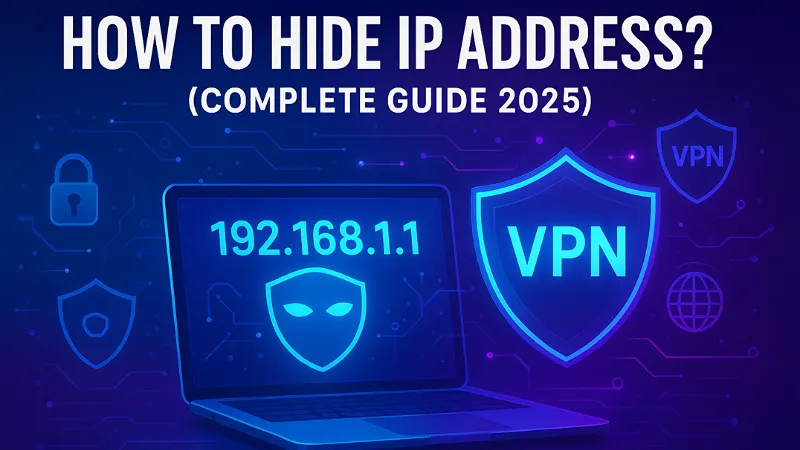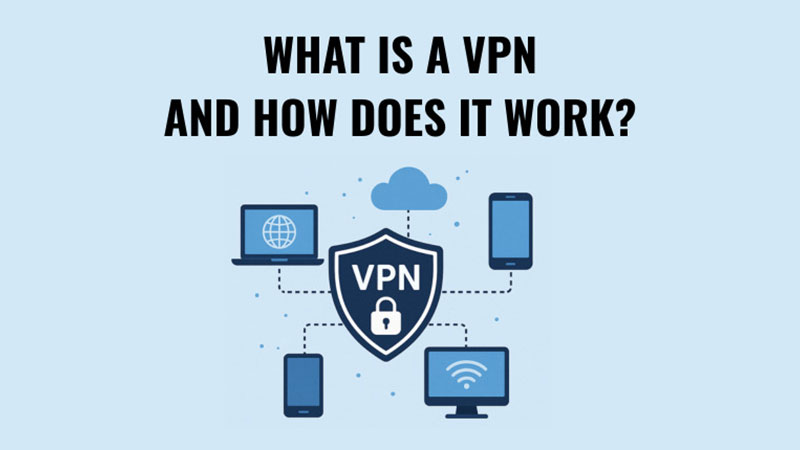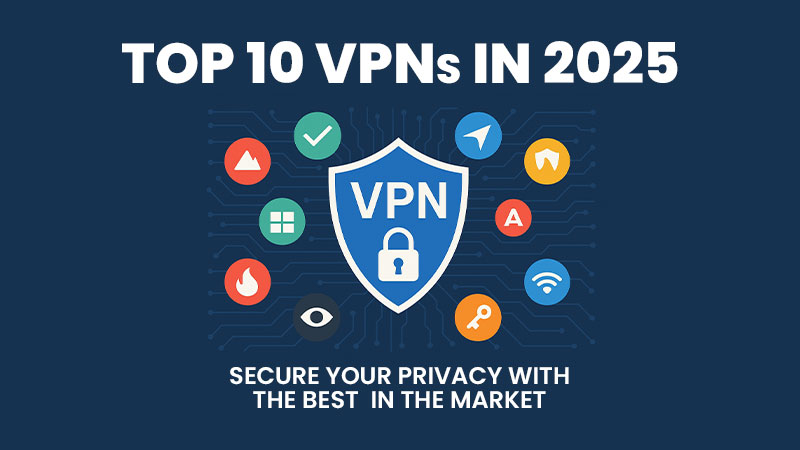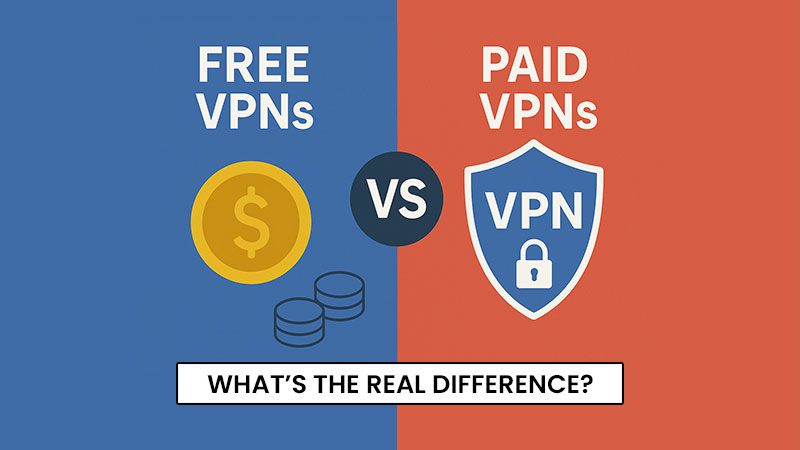Understanding How to Hide Your IP Address is one of the most effective ways to maintain privacy online. Your IP Address functions as your digital return address, identifying your location, device, and even your internet service provider. Whenever you browse, stream, or interact online, your IP Address is automatically shared with websites and online services. This means advertisers, trackers, and even hackers can potentially build a profile of your activity. Learning How to Hide Your IP Address not only protects your personal data from prying eyes but also helps you bypass geo-restrictions, safeguard your identity, and enhance your overall cybersecurity. In this guide, we’ll walk you through the most reliable, legal, and practical methods to conceal your IP Address, explaining how each option works, their pros and cons, and how to stay safe from leaks or misuse.
In this complete guide, we will cover everything you need to know about hiding your IP address, including why it matters, different methods available, their pros and cons, and which solution is best for you in 2025.
What an IP address is – and why you might want to hide it
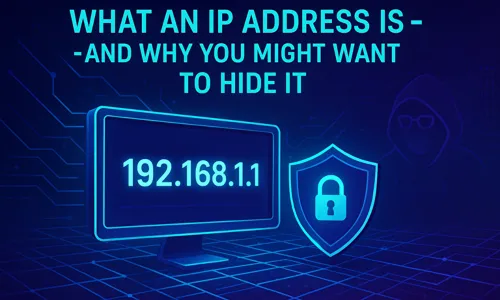
An IP address (Internet Protocol address) is a unique numeric label assigned to every device that connects to the internet. It works much like a digital home address, helping data packets find their way to and from your device. There are two main types of IP addresses – IPv4 and IPv6 – and both serve the purpose of identifying your device’s location within a network. Your IP address reveals more than you might think: it can disclose your approximate geographical location, your internet service provider, and even the type of network you’re using.
Every website you visit, every app you open, and every online service you use can detect your IP address. This information is used for analytics, targeted advertising, content localization, and sometimes tracking. For example, streaming services use IP-based restrictions to control access to region-specific content, while advertisers use IP data to serve location-based ads. Cybercriminals can also exploit your IP address to launch attacks, scan your ports, or attempt to track your online footprint.
Learning How to Hide Your IP Address empowers you to control what others can see about your internet activity. By masking your IP address, you can reduce online tracking, avoid location restrictions, and enhance your security – especially when using public Wi-Fi or untrusted networks. Whether you’re aiming to safeguard personal privacy, prevent profiling, or simply explore the web more freely, concealing your IP address is an essential step toward a safer digital experience.
Hiding your IP does not make you anonymous or immune to legal consequences. It’s not a shield for illegal activity. Treat it as a privacy tool, not an invisibility cloak.
Methods to Hide Your IP Address
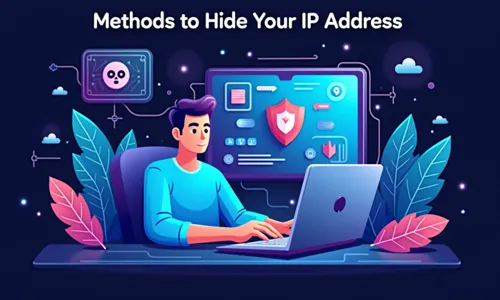
There are multiple ways to hide your IP address. Each method comes with its own advantages and limitations. Let’s explore them in detail:
VPN (Virtual Private Network) – the most popular option
A VPN (Virtual Private Network) works by creating a secure, encrypted tunnel between your device and a VPN server. Once connected, your public IP address is replaced by the VPN server’s IP, making it appear as though your internet traffic is coming from a different location. This is especially useful for protecting your online identity, bypassing geo-restrictions, and shielding your IP address from hackers or trackers. Many VPNs also encrypt your data, so even if you are on an unsecured Wi-Fi network, your communications remain private and secure.
Pros:
- Strong encryption for traffic.
- Easy to use (many apps for desktop/mobile).
- Many servers/locations to choose from.
- Can help access region-restricted content and streaming services.
- Masks your IP address effectively from websites and third-party trackers.
Cons:
- You must trust the VPN provider (they see your traffic metadata).
- Some free VPNs log or sell data; paid reputable services are recommended.
- Can slightly slow your connection depending on server location and load.
- Not all VPNs protect against all types of leaks (DNS, WebRTC) without proper settings.
Practical tips:
- Choose a no-logs, audited VPN with a good reputation.
- Look for features: kill switch (blocks traffic if VPN drops), DNS leak protection, multi-hop if needed.
- Prefer services with audits or transparency reports.
Tor Browser – high anonymity for browsing
How it works: your traffic is routed through multiple volunteer-run relays, ending at an exit node whose IP is what sites see.
Pros:
- Excellent for avoiding many types of network-level tracing.
- Designed for privacy-first browsing.
Cons:
- Slower browsing (many hops).
- Some sites block Tor exit nodes.
- Tor exit node operators can see your traffic if not encrypted – always use HTTPS.
Practical tips:
- Use the official Tor Browser; don’t add plugins that could leak info.
- Use HTTPS-only sites when possible.
- Avoid logging into accounts if your goal is to remain unlinkable to your identity.
HTTP/S Proxies – quick IP swap for specific apps
How it works: your app’s requests go through a proxy server that substitutes its IP for yours.
Pros:
- Easy for single-app use (e.g., a browser or a scraper).
- Usually faster than Tor.
Cons:
- Not encrypted by default (unless using HTTPS).
- Some proxies log traffic or inject ads.
- Less comprehensive than a VPN (may not protect DNS or other apps).
Practical tips:
- Use reputable paid proxies if you need them.
- Combine with TLS (HTTPS) to protect content.
Mobile data / public Wi-Fi / tethering – temporary IP change
How it works: switching networks changes the IP assigned to you by the new network.
Pros:
- Quick and simple.
- Useful for a one-off change.
Cons:
- Public Wi-Fi is insecure and monitored; avoid sensitive tasks.
- The new network still knows your activity and identity if you log in.
Practical tips:
- Avoid doing sensitive transactions on public Wi-Fi unless you also use a VPN.
- Mobile data is often safer than open Wi-Fi but may be costly.
Which Method is Best to Hide Your IP in 2025?

- If you want maximum security and privacy → Use a VPN.
- If you need anonymity for browsing → Use Tor.
- If you want fast streaming without encryption → Use Smart DNS.
- If you just want temporary access → Use public Wi-Fi or mobile data.
Among all these methods, VPNs remain the best choice because they provide both encryption and IP masking, making them a one-stop solution for most users.
Is it Legal to Hide Your IP Address?
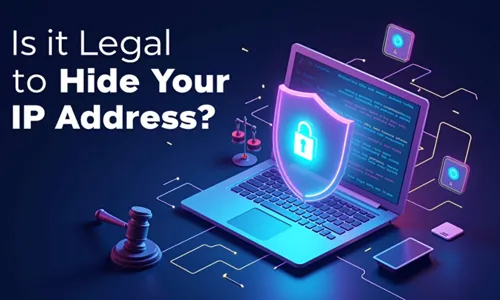
Yes, in most countries, it is completely legal to hide your IP address. Millions of users worldwide rely on VPNs and proxies for online safety, whether it is to protect their privacy at home, stay safe while traveling, or to access global content libraries. In democratic nations, using a VPN or proxy is treated much like installing antivirus software: it is a protective step to safeguard your digital identity.
However, note that laws vary depending on jurisdiction:
- Some countries (like China, Iran, North Korea, Russia, and the UAE) restrict or ban VPN usage, often requiring government-approved providers.
- Even in places where VPNs are legal, using them to commit illegal activities (like hacking, cybercrime, fraud, or piracy) is punishable under existing cyber laws.
- Certain workplaces and schools may also prohibit the use of VPNs to enforce their internal network rules.
In short, hiding your IP address is generally legal, but the intent matters. Using it for legitimate purposes such as privacy protection, bypassing censorship, or accessing streaming content while traveling is acceptable. Misusing it for unlawful actions, however, can lead to serious consequences.
Always use these tools responsibly, keep yourself informed about local laws, and make sure the way you hide your IP aligns with ethical and legal practices.
Learning how to hide your IP address is no longer optional—it’s essential in 2025. Whether you want to protect your privacy, stream global content, or avoid surveillance, the right method can make all the difference.
- For everyday users, a VPN is the safest and most reliable choice.
- For privacy enthusiasts, Tor offers anonymity.
- For streaming lovers, Smart DNS or VPN works best.
By taking this simple step, you regain control of your online identity and enjoy true freedom on the internet.
FAQs on How to Hide IP Address?
Yes, using tools like Tor Browser and VPNs can help mask your IP, but total anonymity requires combining multiple privacy measures.
Yes, hiding your IP address is legal in most countries when done for privacy protection or security purposes.
Yes, you can, but free VPNs often have limitations and may log some data; a reputable paid VPN is usually safer.
Yes, you can use VPN apps or proxy settings on Android to mask your IP address effectively.
No, while hiding your IP helps, trackers can still use cookies, browser fingerprints, and other methods to monitor activity.

